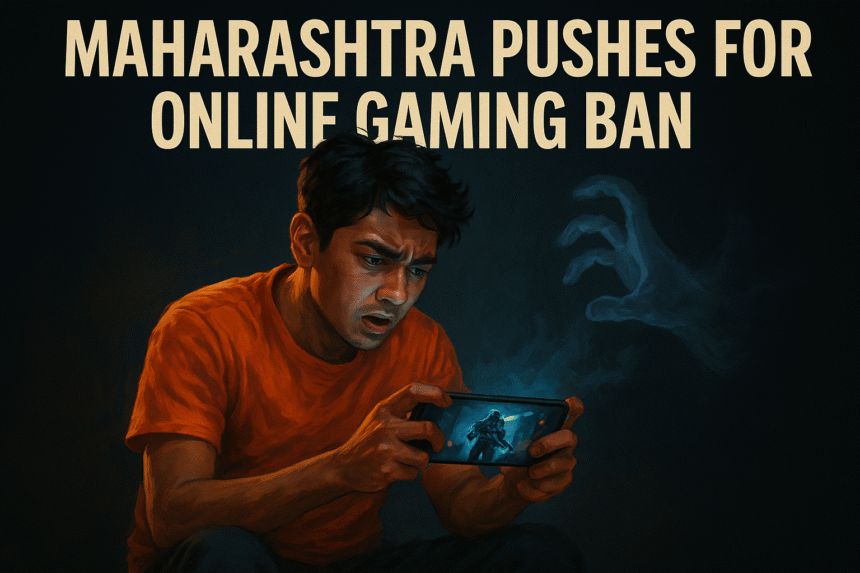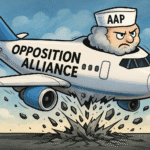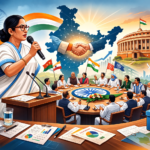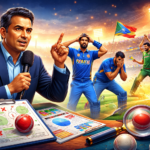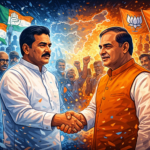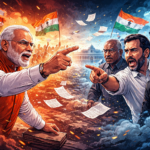In the neon-lit world of digital battlegrounds, Maharashtra is gearing up for a very different kind of game—a no-nonsense, real-world boss fight against online gaming addiction. And if this were a video game mission, it would probably be titled: Operation Ctrl+Alt+Ban.
- 🎮 Level 1: What’s the Problem?
- 🚨 Level 2: A Tragic Turn of Events
- 🧠 Level 3: Understanding the Psychology
- 💰 Level 4: Debt, Crime, and Dark Alleys
- ⚖️ Level 5: Legal Limbo – Who Can Ban the Games?
- 👨⚖️ Level 6: Targeting the Enablers
- 💬 Dialogue Mode: What the CM Actually Said
- 🛠️ Level 7: Solutions Beyond the Ban
- 📊 Level 8: The Global Context
- 🧠 Final Boss: Public Responsibility
- 🏁 Game Over? Not Yet.
- ✅ TL;DR (Too Long; Didn’t Read)
Led by Chief Minister Devendra Fadnavis, the state is pushing for a ban on online gaming, citing increasing cases of addiction, debt, and tragically, even suicide among youth. And no, this isn’t just about teenagers staying up past bedtime to play PUBG. It’s about lives ruined, families broken, and finances destroyed.
Let’s plug into the story.
🎮 Level 1: What’s the Problem?
Fadnavis, clearly disturbed by the rising trend, has written to the Centre and the IT Ministry, demanding urgent intervention. His message? The current laws are weaker than a level-one character in a battle royale. The online gaming ban is not just a moral concern; it’s fast becoming a social necessity.
He pointed out the failure of existing regulations to tackle the mushrooming threat posed by addictive and often financially exploitative online games. These games, often disguised as harmless entertainment, are sucking in young minds and wallets like digital black holes.
🚨 Level 2: A Tragic Turn of Events
Shiv Sena MLA Kailash Patil didn’t just raise the issue for headlines—he brought real pain to the table. He shared the story of a man from his constituency, Laxman Jadhav, whose tale is as chilling as any crime thriller.
Laxman sold his three-acre farmland to fund his online gaming addiction. When that wasn’t enough, he sold his house, fell into unrepayable debt, and in a horrifying spiral of despair, took the lives of his two-year-old son, his pregnant wife, and finally, his own.
That’s not a game over screen; it’s a societal red alert.
🧠 Level 3: Understanding the Psychology
You might wonder: “Why can’t people just stop playing?” Great question! The answer lies in the very architecture of these games.
Online games are engineered to be addictive. They offer:
- Instant gratification
- Dopamine hits with every win
- Peer competition and status symbols (skins, weapons, upgrades)
- Microtransactions that drain real money in tiny but deadly increments
Over time, what begins as fun transforms into obsession. The line between entertainment and addiction blurs faster than a laggy internet connection.
💰 Level 4: Debt, Crime, and Dark Alleys
The addiction isn’t just emotional—it’s financial. Multiple MLAs from across parties expressed that online gaming was pushing youth into crime and criminal debt. From borrowing at exorbitant interest rates to committing theft to fund their digital pursuits, the consequences are not pixelated—they’re painfully real.
Youth who could be cracking job interviews are instead cracking under the pressure of loot boxes and leaderboard rankings.
⚖️ Level 5: Legal Limbo – Who Can Ban the Games?
Fadnavis admitted a frustrating truth: States can’t always ban websites or apps directly, especially when they’re hosted in foreign lands with their own lax or non-existent gaming regulations. It’s like trying to shoot a flying drone with a rubber band.
Only the Centre has the legal firepower to legislate this change. Hence, the Chief Minister has escalated the matter to Delhi’s digital war room.
But that doesn’t mean the state is powerless.
👨⚖️ Level 6: Targeting the Enablers
Abhijeet Patil, NCP (SP) MLA from Madha, offered a clever workaround. If the state can’t ban the platforms directly, it should target the celebrities and influencers who promote these games. That’s right—the same actors who sell you fairness creams are also selling digital addictions under the guise of “cool gameplay.”
Cracking down on celebrity endorsements might help dry up the promotional fuel that feeds this blazing inferno.
💬 Dialogue Mode: What the CM Actually Said
“We do not disagree with the need for a ban,” said Fadnavis. “This issue has grown over the past four to five years. We explored whether the state could enact a law, but since these websites are hosted globally, only the Centre has the authority to legislate.”
His words are an admission and a call to arms: Maharashtra is ready to lead—but it needs Delhi’s sword to slay the dragon.
🛠️ Level 7: Solutions Beyond the Ban
Let’s assume the ban is implemented tomorrow. Will it be enough?
Probably not.
Here’s what must accompany the online gaming ban to ensure long-term success:
- Mental Health Counseling in Schools
Online addiction must be tackled early, like a malware scan before things crash. - Parental Awareness Workshops
Most parents don’t even know their kids are spending ₹10,000 on digital coins. Awareness is power. - Financial Literacy for Teens
“Real money vs. in-game currency” needs to be a part of school curriculum. - Strict Ad Regulations
Ads glamorizing these games should face the same scrutiny as alcohol or cigarette commercials. - Gamification of Good Habits
Not all games are bad. Fitness apps, educational quizzes, and skill-based platforms can harness the same dopamine engine for good.
📊 Level 8: The Global Context
India isn’t alone in this digital dilemma. Countries like China have already implemented time limits on gaming for minors and banned certain types of games. South Korea and Japan also have restrictive measures.
India, with its massive youth population and rapidly growing internet base, must take proactive steps before it’s too late. Otherwise, we risk raising a generation more fluent in “battle passes” than in “job passes.”
🧠 Final Boss: Public Responsibility
Let’s not forget—governments can only go so far. The ultimate control lies in our personal discipline, social awareness, and collective demand for ethical tech behavior.
If games are the new playgrounds, we need new safety rules. No cheating. No exploitation. No digital bullying.
🏁 Game Over? Not Yet.
Maharashtra’s move is not just a policy headline—it’s a wake-up call for parents, teachers, lawmakers, and players alike.
Yes, online games can be fun, competitive, and a great escape. But when fun becomes fatal, we need to unplug and rewire.
✅ TL;DR (Too Long; Didn’t Read)
- Maharashtra CM Fadnavis is pushing for a national online gaming ban.
- Youth are facing addiction, debt, and even suicide.
- Tragic stories, like Laxman Jadhav’s, highlight the urgency.
- Lawmakers want action against celebrity endorsements too.
- Ban alone isn’t enough—counseling, awareness, and financial education are essential.
Want to truly level up? Let’s create a digital world where games are for joy—not jeopardy.





